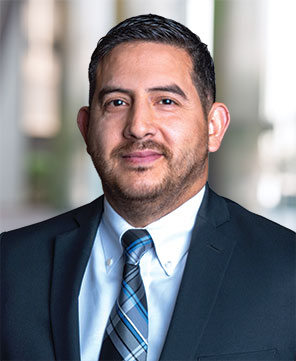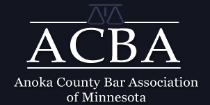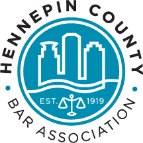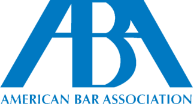Experienced Twin Cities Criminal Defense Attorneys
At Barna, Guzy & Steffen, our experienced attorneys have nearly 20+ years of combined experience obtaining the best possible outcome for clients facing criminal charges.
Criminal Defense Services
Our team of criminal defense attorneys devotes our best efforts to securing the most positive outcome for your situation. If you or a loved one are facing criminal charges, we can help. We handle all types of criminal cases including:
- DUI/DWI
- Misdemeanor
- Gross misdemeanor
- Felony
- Assault
- Domestic crime charges
- Drug crime charges
- Sex crime charges
- Homicide
- Theft and property crimes
- Expungement
Our criminal defense attorneys offer flexible rates and payment plans. We’ll work with you in all aspects of your case, keeping you informed every step of the way. Our lawyers have prosecution and public defender backgrounds as well as private criminal defense experience. This means you’ll have a wealth of experience to call upon when we represent you.
Your defense team will research and manage all available facts and related information about your case.
Read our criminal justice FAQ below, visit our blog, or contact us with questions.
Contact us for more information or to schedule a consultation.
Our Criminal Defense Attorneys
Frequently Asked Questions
VIEW ALL FAQSWhat should I do if I am stopped by the police?
- Be respectful and polite.
- Stay calm and in control of yourself.
- Keep your hands to yourself and in plain view.
- Don’t resist, even if you believe you are innocent.
- Do not tell the police they’re wrong or that you’re going to file a complaint.
- Don’t say anything about the situation.
- If arrested, ask to speak with a lawyer in private as soon as reasonably possible.
- If the officer asks if you know why they stopped you, simply reply that you are not sure.
What should I do if I am arrested?
Listen to your Miranda Rights.
- You have the right to remain silent.
- Anything you say can and will be used against you in a court of law.
- You have the right to an attorney. The attorney should be present before any questioning.
- If you cannot afford an attorney, one will be appointed to represent you before any questioning.
- Do you understand these rights?
Request to speak with an attorney in private. Your Miranda warning will be read to you by the arresting officer. It is very important that you pay attention to every word of these rights.
If you are placed under arrest, the officer has most likely completed an investigation leading to the belief that there was probable cause that you committed a crime. At this point, the officer has made their decision. Do not think that you could say or do anything to change the officer’s mind.
Do not resist arrest. Resisting arrest could subject you to further criminal charges if you go too far. Additionally, your attitude toward the arresting officer, if negative or volatile, will be presented as supporting a guilty verdict. In general, juries do not react favorably to a person who fights with police and will most likely see this is as evidence of guilt.
If convicted, the prosecution could use any negative conduct to support a harsher sentence. In short, displaying aggressive behavior toward police will only cause trouble. Even if you are scared, angry, or are experiencing high anxiety, you must maintain composure and politely request to speak to an attorney in private.
What happens after I am arrested?
- The arrest: There is probable cause that the person has committed a crime.
- Police reports: These reports go to the prosecuting attorney, who decides whether charges will be filed.
- The arraignment/first appearance: The criminal defendant is formally advised of the charges and of constitutional rights. Bail is often set at this arraignment.
- Pre-trial hearing: This is a good time to negotiate a plea.
- Trial: During a trial, both sides will present their arguments to a jury made up of men and women as impartial jurors. During the deliberation phase, the jury will decide whether the prosecution has met the burden of proving guilt beyond a reasonable doubt. If the jury finds the defendant not guilty, they are free to go and cannot be prosecuted again based on the same offenses.
- Sentencing: If the defendant is found guilty, the judge will determine and impose proper punishment in the sentencing hearing. At this hearing, the defendant can propose why they believe the judge should give a lower possible penalty.
- Collateral consequences: Conviction can have additional consequences. In felony cases, these consequences can include but are not limited to: loss of the right to vote, loss of the right to possess a firearm, loss of the right to associate with other known criminals, registration as a predatory offender, registration as a narcotics offender, or increased penalties for future convictions.
- Appeals and writs: If convicted, it is possible to file an appeal to an appellate-level court to argue that the trial court made legal errors. If the defense can prove that the trial court made legal errors, or denial of a fair trial, it may result in the reversal of the conviction.
- Probation/supervised release/parole: This is a period of time when the defendant has multiple sentencing provisions to comply with.
- Expungement: Expungement is a process where, in some cases, your conviction may be sealed.
What is the difference between DUI and DWI?
DWI: Driving While Intoxicated
DUI: Driving Under the Influence
In some states, these terms have different meanings. In Minnesota, they are interchangeable. There is no technical difference between the two.
Do I need an appointment to speak with an attorney?
Please call our offices to inquire about making an appointment to speak with an attorney. The knowledgeable staff will be able to answer your questions regarding the appointment and make sure that everyone is prepared for the initial consultation.
How much do you charge for a consultation?
While some attorneys have free initial consultations, there are some areas of law that require a small fee for an initial consultation. You will be informed of any and all fees associated when you call to make an appointment.
What are your attorney’s fees?
Our attorneys offer highly sought-after professional services for which there is an associated fee. These fees will be discussed in your initial consultation.
Will you keep my legal matter confidential?
Our attorneys and staff are professionals experienced in providing legal services with efficiency and the utmost of client confidentiality. Trust, dedication, and professionalism are essential to the success of any business relationship. We believe these characteristics are the essence of integrity, and we strive to nurture these values within our firm. Since our inception, the attorneys at Barna, Guzy & Steffen have been committed to providing comprehensive legal services within the framework of professional excellence.
Speak with an Experienced Attorney
The law firm of Barna, Guzy & Steffen offers dedicated attorneys who effectively and efficiently handle your legal needs with the highest level of professionalism.









